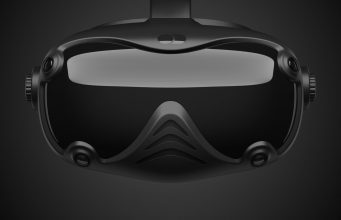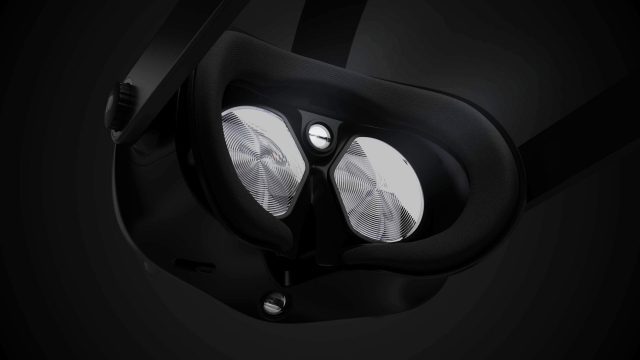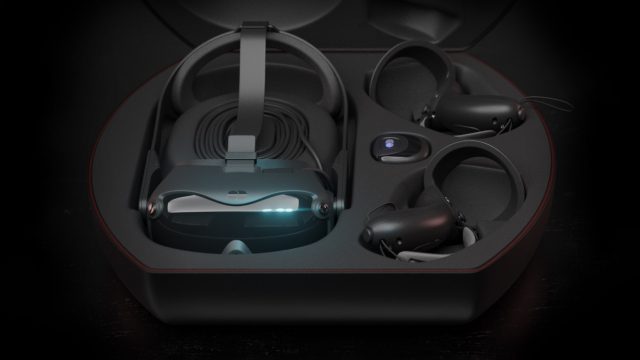
With the reveal of the DecaGear headset last week we wanted to learn more about the company behind the project. We got in touch with Or Kuntzman, the founder & CEO of Megadodo Simulation Games (which is building DecaGear) to learn more about its background and future plans.
First a quick recap. DecaGear is an upcoming PC VR headset that emerged seemingly out of thin air promising big specs and an ambitious price. The headset is claimed to have a 2,160 × 2,160 (4.6MP) per-eye resolution at 90Hz, IPD adjustment, face-tracking with two inward-facing cameras, motion controllers with finger-tracking, hip-tracking, four camera inside-out tracking, and full support for SteamVR content. All supposedly for just $450.

Road to VR spoke with the founder & CEO of Megadodo Simulation Games, the company building DecaGear, to learn more about the company’s development process and how it plans to deliver on its promises.
On his own background, Kuntzman said he’s originally from Israel where he worked as a software developer, later founding an online ad business that he eventually sold to another Israeli ad company.
Following that, he explains, “I moved to South Asia seven and a half years ago, started a fintech company in Singapore, and eventually moved to Bangkok to work on a VR game, which turned into a framework we currently call DecaSpace. Along the way, with a small team of engineers only we decided to work on a new VR hardware targeted to multiplayer gaming.”
Kuntzman said the company, Megadodo Simulation Games—whose website now redirects to the DecaGear site—was founded in early 2018 and has since grown to 20 full time employees (though only 11 are noted on the company’s ‘People’ page) . Megadodo is funded by Kuntzman and “another investor,” he said.

As for development of the DecaGear headset, Kuntzman said the company is already “entering a QA stage where all the software systems are working and the prototypes are printed in-house with Fromlabs printers (except a couple of infrared transparent black parts which we needed to use mold injection for).” A small number of prototypes are expected by the end of the year.
Kuntzman said he understands the skepticism the company has seen following the reveal of its headset.
“There are many people being skeptical about a company that suddenly comes out with a product—out of nowhere, especially a VR headset. We also contributed to the overall skepticism with a stupid mistake with our facial tracking video where Kelly is narrating [video here], we’ve decided to add an opening which was shot much later than the actual in-game part, it didn’t match perfectly and it now invites some legitimacy concerns.” More videos are coming, he said.
Kuntzman also pointed us to a recently published post on the company’s blog which summarizes vision:
- Release a PC-VR, high fidelity headset built especially for multiplayer gaming and experiences with facial tracking, natural locomotion based on the hip direction and pressure sensitive hand controllers with all finger tracking.
- The system will be available for pre-order in late 2020 for US$459.
- SteamVR support means immediate access to thousands of VR games from day one.
- The DecaGear SDK allows developers to easily and quickly integrate all of the system’s unique features.
- Future plans for a DecaSpace SDKs will allow players to communicate and navigate between games seamlessly in VR.
The last point there, about the DecaSpace SDK, is another ambitious goal from the company beyond just delivering a headset with killer specs and a great price. Apparently based on the work the company was doing prior to pivoting into hardware, DecaSpace is a sort of social foundation that the company hopes will underpin its headset by interconnecting various VR experiences.
While the DecaGear is sort of a physical set of tools the player uses in order to track their body in VR, I see another, in-game set of tools that allows the player to seamlessly move between games without the need to return to a ‘lobby’ or ‘home’ world. Players can video call or chat with their friends, no matter what games they are currently playing and game developers can easily join their game and monetize it in a freemium model in order to allow players to move in and out freely. […]
We will share more details on DecaSpace soon, but it’s worth noting that DecaSpace isn’t another VR social network — there are no rooms or “worlds” that we or the players intend to create. It is a framework that connects and monetizes games within VR.
– – — – –
There’s still plenty more we want to know about Megadodo Simulation Games and DecaGear; we expect to get more details from Kuntzman soon.
The post DecaGear CEO Shares Details on Company Background, Future Plans appeared first on Road to VR.
from Road to VR https://ift.tt/2JatZph
via IFTTT
No comments:
Post a Comment